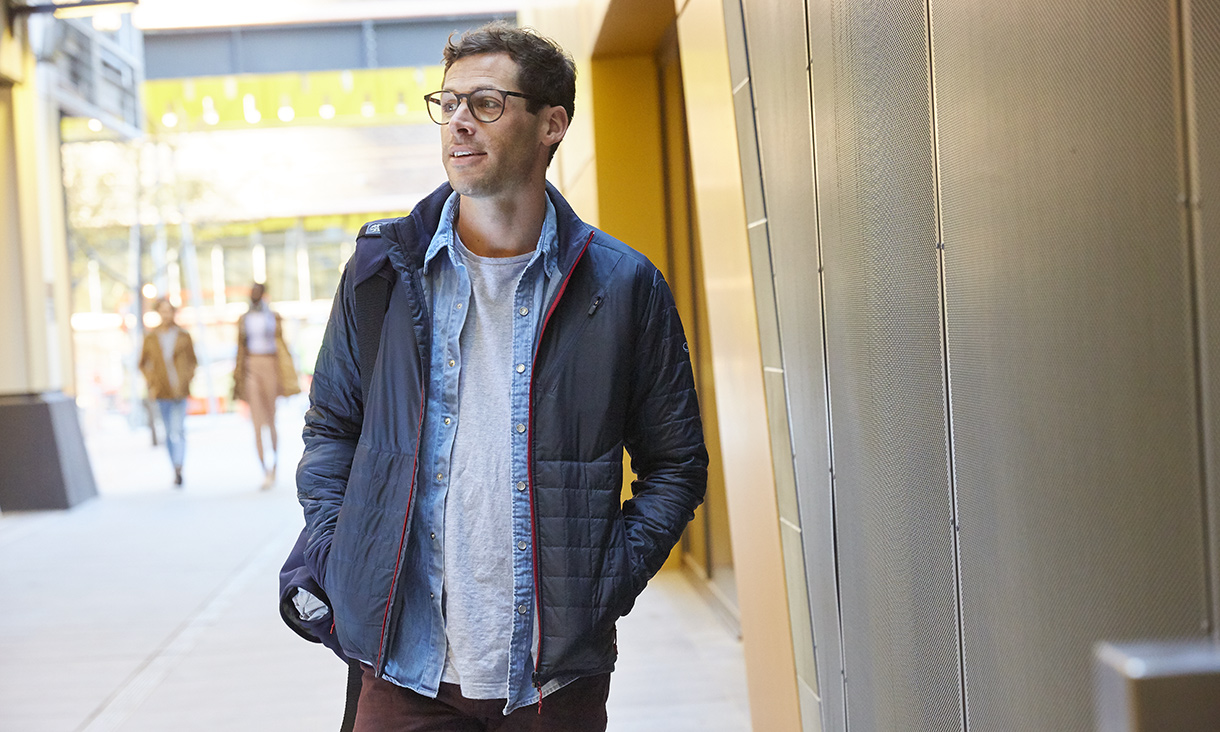The group, named “Roya” meaning “dream” in Persian, is made up of four RMIT Computer Science and Information Technology alumni.
Ali Yavari, a sessional staff member in Computer Science and Information Technology, formed the group with some of his former students.
“The group is about dynamic two-way interactions between the teacher and students, with student engagement trying to go a step further by tackling real problems that are impactful for society,” he says.
“The main objective is to prepare the students for job hunting and entrepreneurship and to provide them a great experience that will be helpful for the future.”
Roya took out the Melbourne prize for the Creativity Award and were nominated for the global award.
TADHack is a global event that was this year streamed live around the world from Melbourne, with an audience and judging panel comprising of big industries in tech, such as Telstra and Oracle.
This year Roya joined other students and engineers around Melbourne and worked together to find solutions that could help people in society to have better engagement with the community, even if they have disabilities or limitations.
Rongjun Xie is in his second year of Masters by Research in Computer Science and participated with Roya during the two-day hackathon.
“We proposed a Cloud-based solution to assist people with limitations.”
Over 350,000 Australians are colour-blind, one in six has a vision problem, and one in eight has hearing difficulties. This can be a major hurdle in the ways that these people navigate a computer.
Roya used this challenge as a way to attempt to improve the lives of these people, by producing better user translations and interactions through interface customisation.
The group proposed a platform to collect real-time data to assist with user interaction to increase accessibility and engagement of people with hearing and vision impairments, e.g. colour blindness.
“It was a really good opportunity to develop personal skills, not only in terms of technique but also communication, coordination, collaboration.” Rongjun says.
Sonya Zhao, a graduate of the Masters of Information Technology, is also a member of the group.
“TADHack is a very impressive and inspiring experience,” she says.
“It taught me the importance of team work and helped my motivation towards exploring cutting edge technology and more innovative ways to solve problems.”
For Ali Yavari, the most important aspect of the TADHack experience is for students to learn skills in entrepreneurship, and overcoming any challenges that are thrown their way, as the solutions can expand beyond Hackathon.
“This experience undoubtedly adds colour to our future resumes,” Rongjun says.
“The things we learned in TADHack are highly valuable by helping us improve in different areas, especially in communication and presentation.”
“The last and most important thing I learned is that technology should find a suitable way to help people have a better life.”
Story: Andie Phillips





